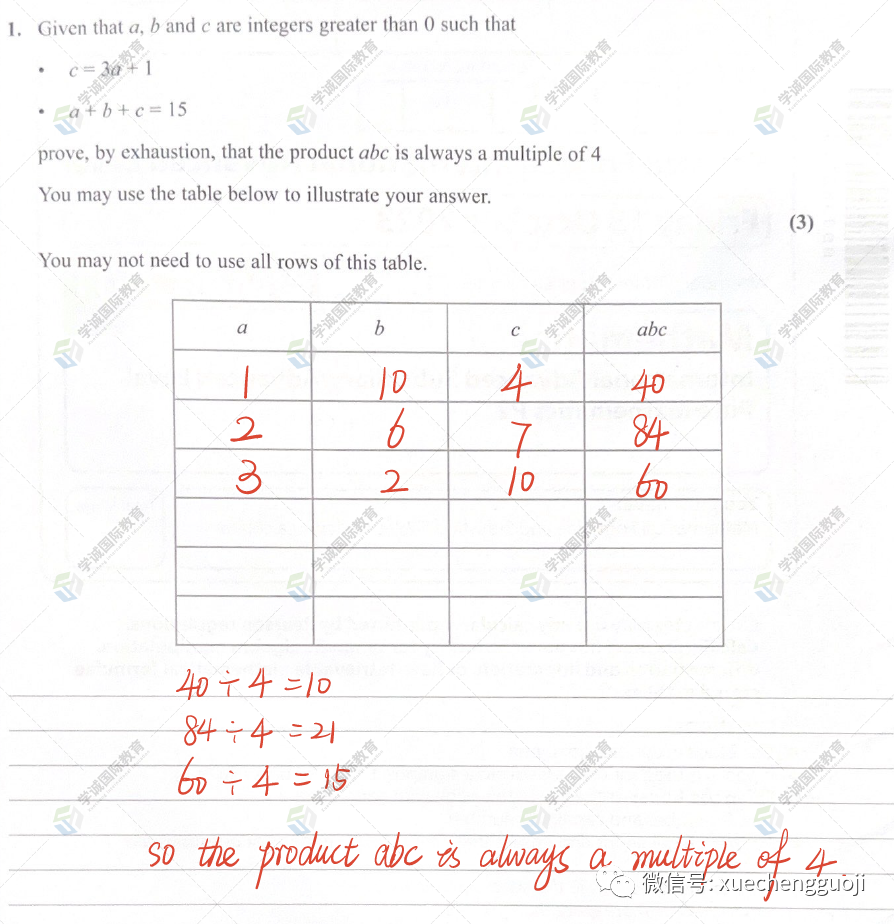今日話題
經濟學破題關(guan) 鍵
經濟學作為(wei) A Level 考試的重點科目之一,涉及知識點多且繁雜,其中的Essay 題目(20分/題)更是讓考生一籌莫展。相當一部分考生直接放棄該題,導致考試失利。部分考生盡管望而生畏地寫(xie) 了半篇,寫(xie) 到Evaluation部分的時候,又會(hui) “抓破腦袋,無從(cong) 下手”。對照Essay論文KAAE的要求,今天重點給同學們(men) 剖析最讓大家頭疼的Evaluation(E)的破題技巧,希望能夠幫助同學們(men) 在馬上到來的大考中輕鬆“上分”。
不管是什麽(me) 類型的考試,關(guan) 鍵在於(yu) “總結歸納”,當遨遊過題海,從(cong) 中抽身時,你會(hui) 發現,題目千變萬(wan) 化、百般刁難,終究離不開幾個(ge) 宗旨。對於(yu) Evaluation的破題,用“正反-批判-萬(wan) 能”六字破題。
01、經濟學破題關(guan) 鍵
正反
所謂“正反”,就是事物優(you) 點缺點、貢獻危害。如果“原題論證的是缺點”,那答題在Evaluate中就說“雖然它有這些缺點,但同時它也具備著一定的優(you) 點”,反之亦然。
與(yu) 其他學科不同,經濟學的論文中很少有“標準”答案,不存在“黑白二選一”的情況,而是更多考察考生通過不同的角度來分析問題利弊綜合, 因此在Evaluate部分去提及另外一麵就是最好的分析。
例題:
‘Pursuing economic growth at the expense of the environment has resulted in pollution, climate change and the over-consumption of natural resources.’
Evaluate the costs of economic growth. Refer to a country of your choice in your answer.
解題簡略框架:
✅ cost 負麵缺點:
The first cost of economic growth is ...
The second cost of economic growth is ...
The third one is ...
✅ benefit 正麵優(you) 點 (Evaluate 部分)
However, economic growth also bring a lot of benefits.
The first benefit is ...
Also ...
Thirdly ...
02、經濟學破題關(guan) 鍵
批判
所謂“批判”,即“NOT always......”。世間萬(wan) 物,成因與(yu) 結果之間總有一個(ge) 牽線的紅娘“條件”。當“條件改變”或者“條件缺失”,原來的成因就“脫軌”,構不成“原來的結果”,或者朝著非預定的方向發展。
例題:
Evaluate fiscal policy instruments as a means of increasing the rate of economic growth.
分析簡圖:
1️⃣ fiscal policy ( increase government spending G) => AD increase =>economic growth;
2️⃣ fiscal policy ( decrease income tax ) => C incrase => AD increase =>economic growth;
3️⃣fiscal policy ( decrease corporate tax ) => I increase => AD increase =>economic growth.
Evaluate 部分:
increase in AD would NOT always lead to economy growth. It depends on the position of AD on a Keynesian AS curve. On the vertical section (producing at full employment ) , right shift of AD ( expansionary fiscal policy ) would only be inflationary without any increase in output.
03、經濟學破題關(guan) 鍵
萬(wan) 能
最後一個(ge) Evaluation 的破題技巧,也是最好用、最受學生歡迎的。在你沒有思路的時候,90%都能用上以下幾個(ge) “思考維度”為(wei) 考卷添字加分。他們(men) 簡稱 “ MM T DO - Tree ” ( 記憶方法:美眉MM, 行動起來 To DO; 不要成為(wei) 一棵樹 Tree 一動不動)。
MM T DO - Tree 是“五大核心觀點”以及“四小方向”的簡稱,分別指 Magnitude , Measurement , Time , Different stakeholders , Opportunity cost 五大,以及Trade-off,Relative, Expensive 以及Externality 四小。在Evaluation 中,這“五大四小”可以使用的語言舉(ju) 例(見附表)。
















評論已經被關(guan) 閉。